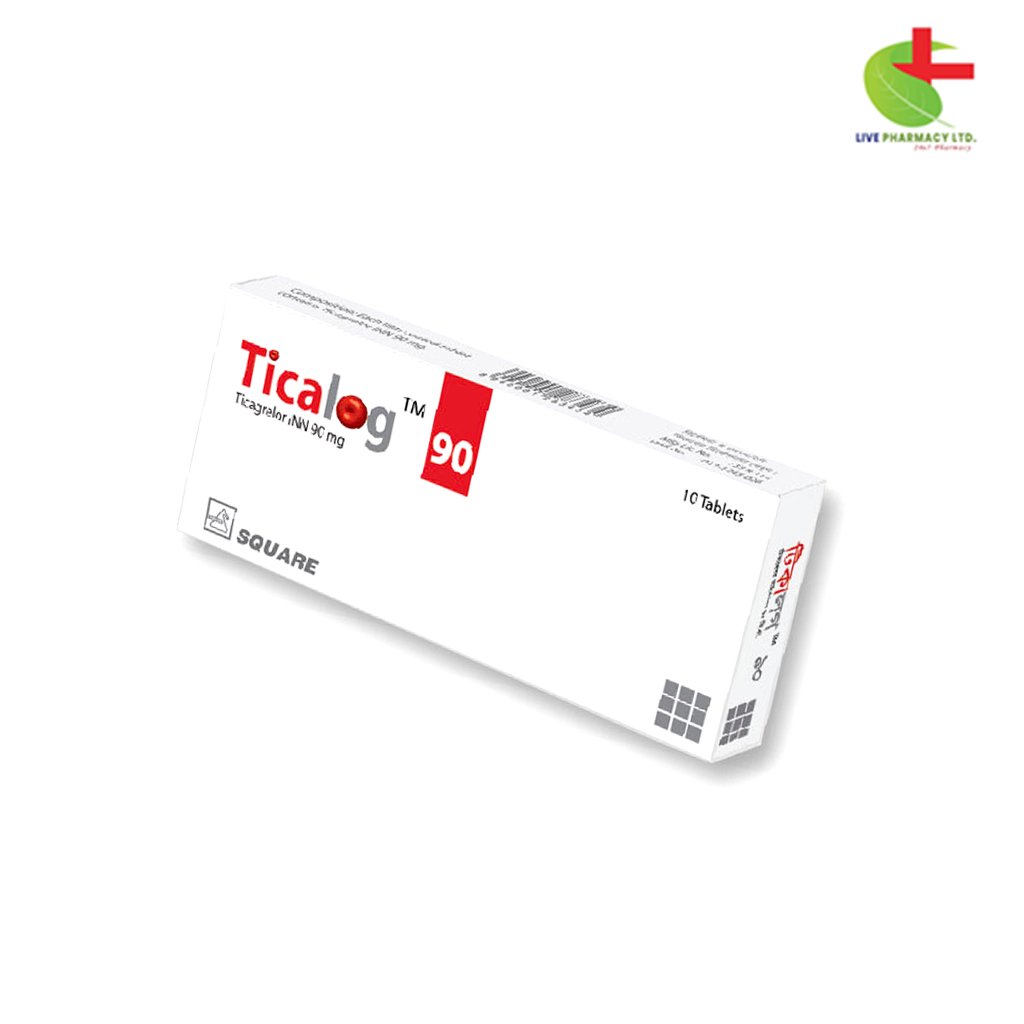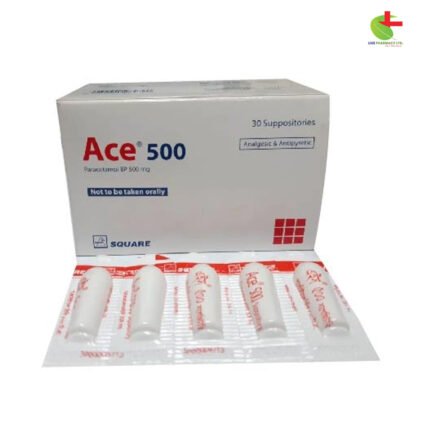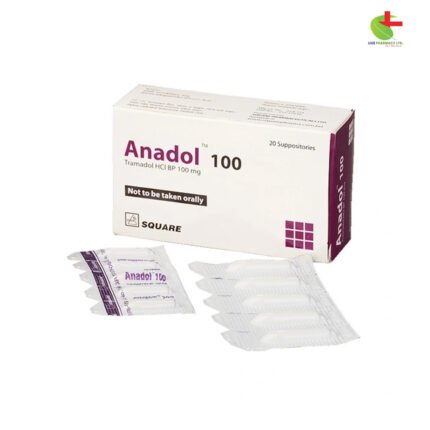Ticalog 90
750.00৳ Strip
- Specializing in pharmaceutical care with a focus on medications such as Ticalog.
- Comprehensive information on preventing atherothrombotic events in ACS and MI patients.
- Detailed pharmacological insights and dosage guidelines provided.
- Expert advice on interactions, side effects, and optimal medication management.
 Brand
Brand
|
Square Pharmaceuticals PLC |
|---|---|
 Generics
Generics
|
Ticagrelor |
 Type
Type
|
Tablet |
Indications
Ticalog, when co-administered with acetylsalicylic acid (ASA), is prescribed to prevent atherothrombotic events in adult patients who have acute coronary syndromes (ACS) or a history of myocardial infarction (MI) and are at high risk of developing further atherothrombotic events.
Pharmacology
Tigecycline, an intravenous glycylcycline antibacterial agent, inhibits bacterial protein translation by binding to the 30S ribosomal subunit. This mechanism prevents amino-acyl tRNA molecules from entering the A site of the ribosome, thereby blocking the incorporation of amino acids into elongating peptide chains. Tigecycline demonstrates no cross-resistance with other antibacterial agents.
Dosage & Administration
Patients taking Ticagrelor should also receive a daily low maintenance dose of acetylsalicylic acid (ASA) ranging from 75 mg to 150 mg, unless there is a specific contraindication.
For acute coronary syndromes, treatment with Ticagrelor begins with a 180 mg loading dose (two 90 mg tablets), followed by 90 mg twice daily. In ACS patients, Ticagrelor is typically administered twice daily for 12 months, unless there are clinical reasons for discontinuation.
For patients with a history of myocardial infarction, Ticagrelor at 60 mg twice daily is recommended for extended treatment, initiated without interruption after the initial one-year treatment period with Ticagrelor or another ADP receptor inhibitor.
Switch Therapy
If switching from another antiplatelet medication to Ticagrelor, the first dose should be given 24 hours after the last dose of the previous medication.
Missed Dose
If a dose of Ticagrelor is missed, patients should take only one tablet (their next scheduled dose) at its regular time.
Special Populations
No dose adjustment is required for elderly patients or those with renal impairment. Ticagrelor is not recommended for patients with severe hepatic impairment and should be used cautiously in those with moderate hepatic impairment.
Pediatric Use
The safety and efficacy of Ticagrelor have not been established in children under 18 years of age.
Interaction
Ticalog may interact with several medicinal products. Strong CYP3A4 inhibitors, such as clarithromycin and ritonavir, should not be used concurrently with Ticalog. Co-administration with potent CYP3A inducers, like rifampicin, is discouraged due to potential decreased efficacy.
Contraindications
Ticalog is contraindicated in patients with hypersensitivity to its components, active pathological bleeding, a history of intracranial hemorrhage, or severe hepatic impairment.
Side Effects
Common side effects of Ticalog include bleeding disorders, hyperuricemia, and dyspnea. Less common adverse reactions may include gout, dizziness, headache, gastrointestinal hemorrhage, and rash.
Pregnancy & Lactation
Ticalog is not recommended during pregnancy due to potential risks. Breastfeeding should be considered carefully, weighing the benefits against potential risks to the infant.
Precautions & Warnings
Patients using Ticalog should be monitored for bleeding risk, particularly those with a history of bleeding disorders or recent trauma. Surgery should be carefully planned with consideration given to discontinuation of Ticalog prior to elective procedures.
Overdose Effects
Ticalog is generally well-tolerated in single doses up to 900 mg. Symptoms of overdose may include gastrointestinal toxicity, dyspnea, and ventricular pauses.
Therapeutic Class
Ticalog belongs to the therapeutic class of antiplatelet drugs.
Storage Conditions
Store Ticalog in a cool, dry place protected from light.













Reviews
There are no reviews yet.